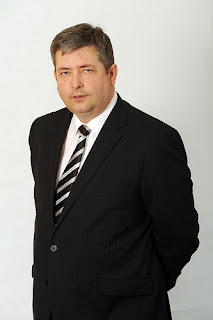As regular readers will know, I do like a good survey, and the Scottish Household Survey is a bumper compendium, examining issues ranging from Scots' housing tenure and internet access, to rates of participation in cultural activities and people's financial circumstances. There is plenty here to divert anyone interested in quantitative sketches of Scottish demography. I intend to dip in and out of the figures over the coming months, but for today, a quick word or two on the results of a new question introduced to the 2011 survey.
In the chapter looking at the "Composition and Characteristics of Households and Adults in Scotland", the researchers pose a range of question. Are you married, divorced, unmarried? How ancient, what ethnicity, living in an urban or rural environment? Last year, statisticians introduced a new "core" question, on sexual orientation.
"Developed by the Office for National Statistics, the question was designed to provide accurate statistics to underpin the equality monitoring responsibilities of public sector organisations and to assess the disadvantage or relative discrimination experience by the lesbian, gay and bisexual population."
So what did they find? Of their base of 12,893 respondents...
And disaggregated by gender, with the ladies first:
And men...
If we take the General Register Office's most recent Scottish population estimates (5,254,800 in June 2011), and crudely extrapolate out from these percentages, our lesbian, gay and bisexual population would number just 47,293 people (nationally, just slightly more than the population of Ayr or Dunfermline). Of course, there are plenty of problems with this decidedly rough and ready calculation. The Survey figures concern only adults, while the population estimates include the whole population, including children. But bracket those qualms, for the sake of discussion. Does this seem a plausible estimate?
As Better Nation blogger Aidan Skinner pointed out on twitter, if we look at the much more extensively disaggregated and cross-referenced Office of National Statistics findings from England and Wales in 2010 (neatly summarised by the Guardian here), these Scottish figures look strikingly similar. The Scottish data poses similar questions. What is being measured here, precisely? As a number of folk would point out, sexual orientation and sexual activity and attraction aren't the same thing. Moreover, a number of factors seem likely to influence whether or not people are likely to self-identify as lesbian, gay or bisexual. Unlike the ONS statistics, the Scottish findings aren't disaggregated by age, but if we look at the English figures, 14.5% of respondents who identified as gay or lesbian were aged 16 - 24. A further 49.9% were aged 25 - 44, with 27.3% aged 45 - 64 and 5.9% over 65.
It seems unlikely that the British youth of today have an innately heightened predisposition to take up recreational same-sex carnality on a far greater scale than their parents', and grandparents' generations. What seems much more probable, however, is that different segments of the Scottish population are likely to exhibit differential comfort, identifying themselves with gay, lesbian or bisexual identities.
It was only thirty two years ago, in the Criminal Justice (Scotland) Act 1980, that the Scots laws criminalising "homosexual acts in private" were abolished, some scandalous thirteen years after the English and Welsh Sexual Offences Act 1967, with the abiding condition that "both" parties were aged twenty one years old, or above, and consented. Add a third body, and you'd be in trouble. These are developments of many living people's lifetimes. A salutary reminder, you might well think, that the unreformed character in which Westminster left much of Scots law before devolution is not a legacy which one can always comfortably celebrate.
It was only thirty two years ago, in the Criminal Justice (Scotland) Act 1980, that the Scots laws criminalising "homosexual acts in private" were abolished, some scandalous thirteen years after the English and Welsh Sexual Offences Act 1967, with the abiding condition that "both" parties were aged twenty one years old, or above, and consented. Add a third body, and you'd be in trouble. These are developments of many living people's lifetimes. A salutary reminder, you might well think, that the unreformed character in which Westminster left much of Scots law before devolution is not a legacy which one can always comfortably celebrate.








